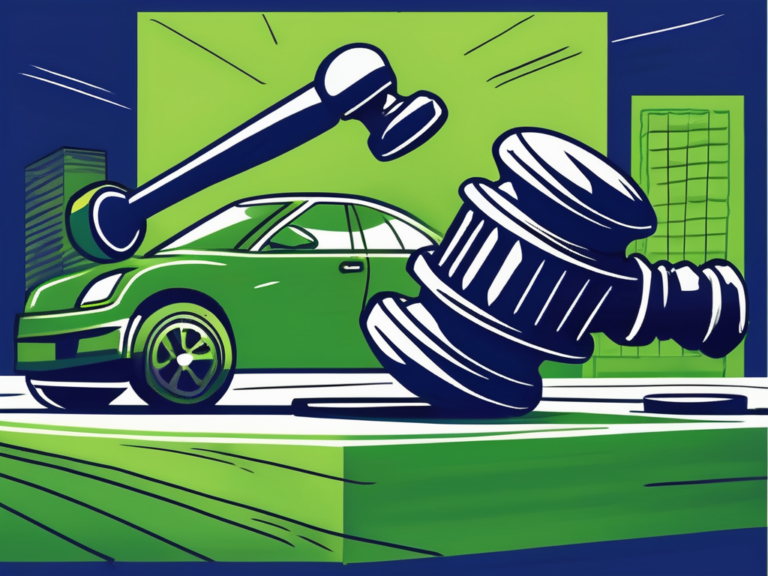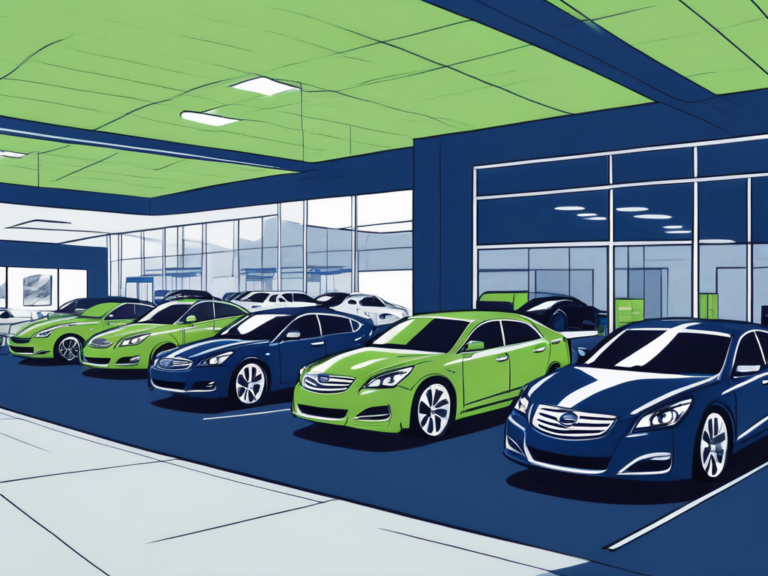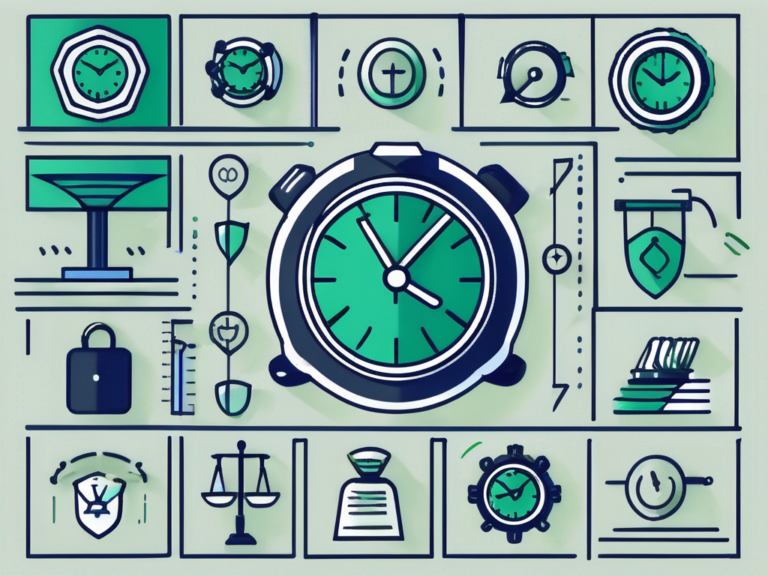Talk to Sales: (401) 200-6026

In today’s competitive market, selling cars requires innovative techniques and strategic thinking. With the ever-evolving dynamics of the modern car buyer, it is essential for car dealerships to tap into creative ways to boost their sales. By understanding the needs and preferences of potential customers, car dealers can tailor their marketing strategies to maximize their selling potential. This article explores various techniques that can help car dealerships sell more cars and unleash their selling potential.
Understanding the Modern Car Buyer
Before delving into the strategies that can enhance car sales, it is vital to comprehend the modern car buyer. Gone are the days when consumers relied solely on traditional advertising methods to make informed decisions. The modern car buyer is tech-savvy, well-informed, and seeks a personalized buying experience. To meet their expectations, car dealerships need to adapt their marketing strategies accordingly.
Today’s car buyers have access to an abundance of information at their fingertips. With the rise of the internet and social media, consumers can research and compare different car models, read reviews, and even connect with other car buyers to gather insights and recommendations. This wealth of information empowers them to make more informed decisions and be more discerning in their car-buying process.
The Importance of Market Research
Market research plays a crucial role in understanding customer preferences and trends. By conducting comprehensive market research, car dealerships can gain valuable insights into their target audience. This data can help in fine-tuning marketing efforts and better understanding customer needs, enabling car dealers to position their products more effectively.
Market research involves analyzing various factors such as consumer demographics, purchasing behavior, and market trends. It allows car dealerships to identify emerging trends, such as the growing demand for electric vehicles or the popularity of certain features like advanced safety technologies. Armed with this knowledge, dealerships can tailor their inventory and marketing strategies to cater to the evolving preferences of the modern car buyer.
Identifying Your Target Audience
Identifying the target audience is the first step towards effective selling. Car dealerships need to define their ideal customer profile by considering factors such as age, income, location, and lifestyle. Once the target audience is identified, car dealers can tailor their marketing messages and strategies to resonate with their potential customers.
For example, if the target audience consists mainly of young professionals living in urban areas, dealerships can focus on promoting compact and fuel-efficient cars that are suitable for city driving. On the other hand, if the target audience is families living in suburban areas, dealerships can highlight spacious and family-friendly vehicles with advanced safety features.
By understanding the unique needs and preferences of their target audience, car dealerships can create more targeted and compelling marketing campaigns. This can lead to higher engagement, increased brand loyalty, and ultimately, more car sales.
Sell cars on the lot faster with AutoRaptor
Know if we’re the right fit within 10 minutes
Innovative Marketing Strategies for Car Sales
Traditional marketing methods alone may not be enough in today’s digital age. To reach a wider audience and generate more leads, car dealerships need to embrace innovative marketing strategies.
In this ever-evolving world of technology, the automotive industry has to adapt and find new ways to connect with potential buyers. Here are some additional strategies that car dealerships can implement to stay ahead of the competition:
Interactive Virtual Showrooms
Incorporating virtual reality (VR) and augmented reality (AR) technology into your showroom experience can significantly enhance customer engagement. Virtual showrooms allow potential buyers to explore different car models, customize features, and even take virtual test drives from the comfort of their homes. This approach not only caters to tech-savvy customers but also creates an immersive buying experience that can drive conversions.
Personalized Customer Journey
Treat each customer as a unique individual by tailoring their buying journey to their preferences and needs. Utilize customer relationship management (CRM) systems to gather insights on their previous interactions and preferences. This data can be used to send personalized recommendations, offers, and follow-up communications. A personal touch can build rapport and trust, increasing the likelihood of closing a sale.
Host Exclusive Events
Organize exclusive car showcases, test drive events, or workshops for potential buyers. These events provide an opportunity to build a sense of community among enthusiasts and potential customers. Offering hands-on experiences and expert insights can create memorable interactions that foster brand loyalty. Moreover, exclusive events often generate buzz and word-of-mouth marketing, attracting new leads.
Subscription and Leasing Models
Offer flexible ownership options beyond traditional buying. Subscription services and leasing models allow customers to experience different cars without the long-term commitment of purchasing. This approach is particularly appealing to customers who value variety and want to stay up-to-date with the latest models.
Environmentally Conscious Initiatives
As eco-consciousness grows, promoting hybrid and electric vehicles can capture a segment of environmentally-minded buyers. Highlight the benefits of reduced emissions and cost savings, and consider installing charging stations at your dealership. Hosting workshops on eco-friendly driving practices can further position your dealership as a champion of sustainability.
Gamification and Rewards
Gamify the car-buying process by incorporating rewards and incentives for customers who engage in certain activities. For example, offer discounts for completing a virtual test drive, referring friends, or sharing their experiences on social media. Gamification adds an element of fun and competition, increasing customer engagement.
Collaborate with Other Businesses
Form partnerships with complementary businesses, such as insurance providers, auto detailers, or car accessory stores. Offering bundled services or exclusive discounts through these partnerships can create added value for your customers. Cross-promotions can also introduce your dealership to a wider audience.
Embrace Online Marketplaces
List your inventory on online automotive marketplaces to expand your reach beyond your local area. These platforms attract buyers from various locations, increasing the chances of finding the right customer for your cars.
Utilizing Social Media Platforms
Social media platforms, such as Facebook, Instagram, and Twitter, offer immense opportunities for car dealerships to connect with potential buyers. By creating engaging content, showcasing vehicle features, and running targeted ads, car dealers can reach a vast audience and increase their chances of making sales.
For instance, car dealerships can create visually appealing posts that highlight the latest models and their unique features. They can also share customer testimonials and success stories to build trust and credibility. Additionally, engaging with customers through comments and direct messages can help establish a personal connection and address any inquiries or concerns they may have.
The Power of Influencer Marketing
Influencer marketing has become a powerful tool for promoting products and services. Collaborating with social media influencers who have a strong following in the automotive industry can significantly increase brand awareness and drive sales. By leveraging the influence of these individuals, car dealerships can tap into their loyal followers and extend their reach to a wider audience.
Imagine a popular automotive influencer test-driving a new model from a car dealership. They could create captivating content, including videos and photos, showcasing the vehicle’s performance, design, and features. This content can then be shared across various social media platforms, generating buzz and generating interest among their followers. Car dealerships can also offer exclusive discounts or promotions through these influencers, further incentivizing potential buyers to make a purchase.
Moreover, collaborating with influencers can also help car dealerships stay up-to-date with the latest industry trends and consumer preferences. Influencers often have their finger on the pulse of what’s hot and what’s not, providing valuable insights that can inform marketing strategies and product offerings.
By incorporating innovative marketing strategies, such as utilizing social media platforms and leveraging influencer marketing, car dealerships can effectively reach their target audience, build brand awareness, and drive sales. In this competitive market, staying ahead of the curve is crucial, and embracing these strategies can give car dealerships the edge they need to succeed.
Enhancing the Customer Experience
Providing an exceptional customer experience is essential for any car dealership aiming to boost their sales. Customers who have a positive buying experience are more likely to recommend the dealership to others and become repeat customers themselves.
Importance of Excellent Customer Service
In the car-buying process, customer service plays a crucial role. From the initial inquiry to the after-sales service, every interaction should be seamless and customer-centric. Training sales representatives and service personnel to provide exceptional customer service can be the key differentiator in attracting and retaining customers.
Exceptional customer service goes beyond just being polite and helpful. It involves actively listening to the customers’ needs and concerns, being knowledgeable about the products and services offered, and providing timely and accurate information. By going the extra mile to exceed customer expectations, car dealerships can build trust and loyalty, creating long-term relationships with their customers.
Furthermore, excellent customer service can also lead to positive word-of-mouth referrals. Satisfied customers are more likely to share their positive experiences with friends, family, and colleagues, thereby increasing the dealership’s visibility and reputation in the market. This organic form of advertising can be highly effective in attracting new customers and expanding the dealership’s customer base.
Personalizing the Car Buying Experience
Each customer has unique preferences and requirements. By personalizing the car buying experience, car dealerships can make potential buyers feel valued and understood. This could include offering customized options, providing personalized recommendations, and tailoring the buying process to suit individual needs.
One way to personalize the car buying experience is by utilizing customer data and analytics. By collecting and analyzing information about customers’ previous purchases, preferences, and browsing behavior, car dealerships can gain valuable insights into their customers’ preferences and needs. This data can then be used to offer personalized recommendations and suggestions, making the car buying process more efficient and enjoyable for the customer.
In addition, car dealerships can also offer personalized financing options to meet each customer’s financial situation. This could include providing flexible payment plans, offering competitive interest rates, and assisting customers in finding the best financing options available to them. By tailoring the financing process to each customer’s needs, car dealerships can make the car buying experience more accessible and affordable.
Moreover, personalization can extend beyond the buying process itself. Car dealerships can offer personalized after-sales services, such as regular maintenance reminders, exclusive discounts on parts and accessories, and personalized customer support. By continuously engaging with customers and providing ongoing support, car dealerships can foster long-term relationships and ensure customer satisfaction even after the initial purchase.
Sell cars on the lot faster with AutoRaptor
Know if we’re the right fit within 10 minutes
Leveraging Technology in Car Sales
Technology has revolutionized the car sales industry. Car dealerships can leverage technology to provide an immersive and convenient buying experience for customers.
The advancements in technology have paved the way for the introduction of virtual showrooms and test drives. These innovative tools allow potential buyers to explore and experience vehicles from the comfort of their own homes. With the integration of virtual reality technology into their sales process, car dealerships can provide a unique and engaging experience to potential buyers. Through virtual showrooms, customers can walk around the vehicle, inspecting every detail, and even take virtual test drives to get a feel for the car’s performance. This level of interactivity and convenience ultimately increases the likelihood of a sale.
In addition to virtual showrooms, the rise of mobile usage has prompted car dealerships to develop mobile apps and online platforms. These digital tools enable car dealerships to reach customers anytime, anywhere. With just a few taps on their smartphones, potential buyers can access a wealth of information about available vehicles, financing options, and even complete online purchases. Mobile apps and online platforms not only provide convenience but also cater to the preferences of tech-savvy buyers who value efficiency and accessibility.
Furthermore, the integration of technology in car sales extends beyond the showroom and online platforms. Car dealerships can also leverage data analytics to gain insights into customer preferences and buying behavior. By analyzing data collected from various touchpoints, such as website visits, social media interactions, and customer inquiries, car dealerships can tailor their marketing strategies and offerings to better meet the needs and desires of their target audience. This data-driven approach allows car dealerships to optimize their sales process and enhance customer satisfaction.
Moreover, technology has also transformed the way car dealerships handle after-sales service. With the advent of connected car technology, vehicles can now transmit diagnostic information to the dealership in real-time. This enables proactive maintenance and remote troubleshooting, minimizing downtime for the customer. Additionally, car dealerships can utilize customer relationship management (CRM) software to streamline their communication with customers, ensuring timely reminders for service appointments and personalized offers based on individual vehicle usage.
In conclusion, technology has revolutionized the car sales industry, providing car dealerships with a multitude of opportunities to enhance the customer experience. From virtual showrooms and mobile apps to data analytics and connected car technology, embracing these technological advancements enables car dealerships to stay ahead of the competition and cater to the evolving needs of tech-savvy buyers. By leveraging technology effectively, car dealerships can create a seamless and convenient car buying journey that delights customers and drives sales.
Building Long-Term Customer Relationships
While making one-time sales is crucial, building long-term customer relationships is equally important for sustainable success in the car sales industry.
Implementing a Follow-Up System
Following up with customers after a purchase can help establish a lasting relationship. Car dealerships can implement a follow-up system to ensure customer satisfaction, address any concerns, and offer additional services. By nurturing these relationships, car dealerships can secure repeat sales and gain valuable referrals.
Creating a Loyalty Program
A loyalty program can incentivize customers to stay connected with the dealership and choose them for future car purchases. Offering exclusive benefits such as discounts on maintenance services, priority access to new models, and personalized offers can encourage customer loyalty and increase the likelihood of repeat business.
By embracing creative ways to sell more cars, car dealerships can unleash their selling potential and stay ahead in an ever-evolving market. Understanding the modern car buyer, implementing innovative marketing strategies, enhancing the customer experience, leveraging technology, and building long-term customer relationships are some of the key areas to focus on. By adapting to these strategies and constantly evolving, car dealers can thrive in the competitive automotive industry.
Want to improve your sales and move cars off the lot faster? Book a test drive with AutoRaptor to see how our simple dealership CRM software can help you close more deals effectively.
Subscribe to our Newsletter
Resources to help your dealership convert more leads into sales, retain more customers, and market inventory smarter, straight to your inbox every Sunday.




